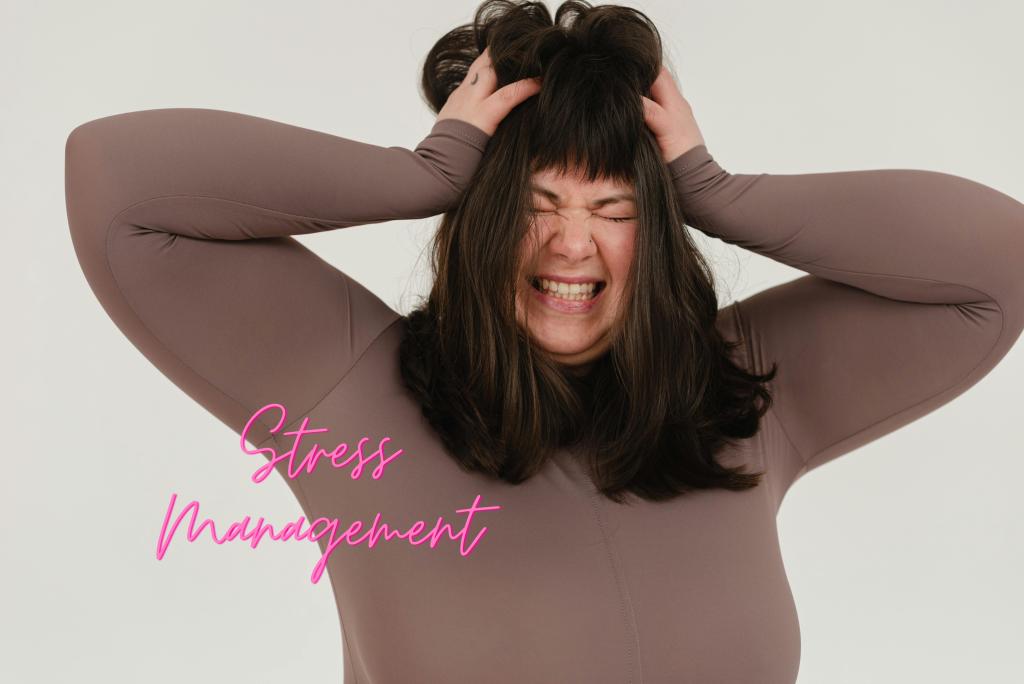Introduction: In today’s fast-paced world, stress has become a common companion for many. Whether it’s the demands of work, relationships, or personal responsibilities, everyone experiences stress at some point. However, learning how to effectively manage stress is essential for maintaining a healthy lifestyle and overall well-being.
In this article, we’ll explore various strategies and techniques for stress management that can help you regain control of your life and cultivate a sense of inner peace. From mindfulness practices to lifestyle adjustments, we’ll cover everything you need to know to combat stress and thrive in today’s hectic world.
Understanding Stress
Stress is your body’s natural response to pressure or demands, triggering a cascade of physiological and psychological reactions. While some stress can be beneficial, helping you stay alert and focused, chronic stress can take a toll on your health and well-being.
Understanding the different types of stress, including acute stress, episodic acute stress, and chronic stress, is crucial for effective management. By recognizing the signs and symptoms of stress, you can take proactive steps to address it before it spirals out of control. You would also like to examine Optimizing Physical Fitness for a Healthier Life.
The Impact of Stress on Health
Chronic stress has been linked to a myriad of health problems, including heart disease, obesity, depression, and anxiety. Prolonged exposure to stress hormones can weaken the immune system, making you more susceptible to illness and disease.
Moreover, stress can also affect your cognitive function, memory, and decision-making abilities, impairing your overall performance and productivity. By prioritizing stress management, you can safeguard your health and well-being for the long term.
Stress Management Techniques
Mindfulness Meditation
Mindfulness meditation is a powerful practice for reducing stress and promoting relaxation. By focusing your attention on the present moment, you can quiet the mind and cultivate a sense of inner calm. Research has shown that regular meditation can lower cortisol levels and improve overall emotional well-being.
Deep Breathing Exercises for stress management
Deep breathing exercises are another effective way to combat stress and anxiety. By taking slow, deep breaths, you can activate the body’s relaxation response and alleviate tension. Practice diaphragmatic breathing or belly breathing for maximum effectiveness.
Exercise and Physical Activity
Regular exercise and physical activity are essential for managing stress and promoting overall health. Engaging in activities such as walking, jogging, or yoga can help reduce cortisol levels and increase endorphin production, leading to a greater sense of well-being.
Healthy Lifestyle Habits
Adopting healthy lifestyle habits such as getting an adequate amount of sleep, maintaining a balanced diet, and limiting caffeine and alcohol intake can also play a significant role in stress management. Prioritize self-care activities that nourish your body, mind, and spirit.
Seeking Support
Seeking support from friends, family, or a mental health professional is not a sign of weakness but a proactive step towards self-care. Talking to someone you trust about your feelings and concerns can provide validation and perspective, helping you cope with stress more effectively.
Setting Boundaries
Setting boundaries is crucial for protecting your mental and emotional well-being. Learn to say no to excessive demands and prioritize activities that bring you joy and fulfillment. By establishing healthy boundaries, you can prevent burnout and maintain a healthy work-life balance.
Practicing Gratitude
Practicing gratitude is a simple yet powerful way to shift your focus from what’s going wrong to what’s going right in your life. Take time each day to reflect on the things you’re grateful for, whether it’s a supportive friend, a beautiful sunset, or a delicious meal. Cultivating an attitude of gratitude can help foster resilience and perspective in the face of adversity.
Conclusion
In conclusion, stress management is a vital skill that everyone should prioritize in their daily lives. By incorporating mindfulness practices, relaxation techniques, and healthy lifestyle habits into your routine, you can effectively navigate life’s challenges with grace and resilience. Remember, you have the power to control how you respond to stress and cultivate a sense of inner peace and well-being.
FAQs
How can stress management improve my overall health?
Stress management techniques such as mindfulness meditation, deep breathing exercises, and regular physical activity can lower cortisol levels, reduce inflammation, and improve immune function, leading to better overall health and well-being.
What are some signs that I’m experiencing too much stress?
Common signs of excessive stress include irritability, fatigue, headaches, muscle tension, and difficulty sleeping. If you’re experiencing these symptoms on a regular basis, it may be a sign that you need to prioritize stress management.
Is it normal to feel stressed from time to time?
Yes, it’s perfectly normal to experience stress occasionally, especially when faced with challenging situations. However, if stress becomes chronic or overwhelming, it’s essential to seek support and implement healthy coping strategies.
Can stress management help improve my relationships?
Yes, stress management can have a positive impact on your relationships by reducing tension, improving communication, and fostering empathy and understanding. By taking care of your own well-being, you’ll be better equipped to nurture healthy and fulfilling connections with others.
Are there any long-term consequences of untreated stress?
Yes, chronic stress has been linked to a range of serious health problems, including heart disease, diabetes, depression, and anxiety. By prioritizing stress management, you can mitigate these risks and protect your long-term health.
How can I incorporate stress management into my daily routine?
Start by identifying stressors in your life and experimenting with different techniques to see what works best for you. Schedule regular self-care activities, such as meditation, exercise, or hobbies, and don’t hesitate to seek professional help if needed.







